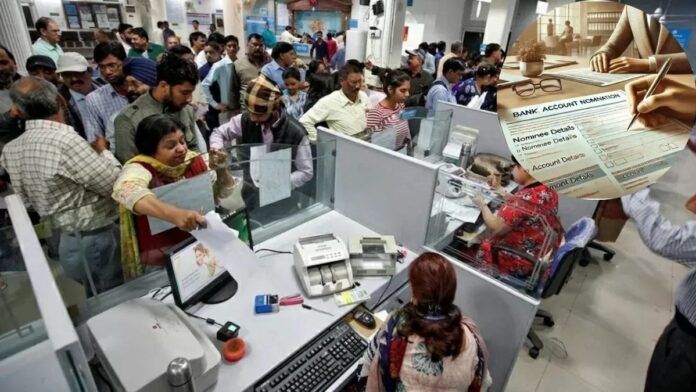The government has implemented the ability to add up to four nominees to bank accounts from November 1, 2025.
Customers will be able to designate a primary and a successor nominee, ensuring the money reaches the rightful recipient quickly after death. Both options are available for savings and fixed deposits, while only a successor nomination is valid for lockers.
The government has implemented new banking nomination rules effective November 1, 2025. The purpose of this change is to make the process of disbursing funds to the family after the death of the account holder faster and easier, so that there are no disputes or delays.
Under the new rules, the ability to add up to four nominees has been expanded. Customers can now add a primary and a successor nominee to each account. This will determine who the bank will disburse first upon the individual’s death, and who will be the next nominee if that individual is no longer there.
Who should be made the primary nominee?
- The primary nominee is the person to whom the bank makes the first payment. A successor nominee is only effective if the first nominee is no longer alive. This allows the customer to add up to four nominees in sequence.
- When deciding on a MINI, make your spouse or major dependent the primary nominee, and your children or other relatives the successor nominees. Update your nominations after any major changes, such as marriage, the birth of a child, or death.
What will be the benefit?
Adding four nominees has several advantages. The family will gain financial security, because if the first nominee is not there, the next nominee will immediately take over. The bank will know in advance the order in which the money will be disbursed, which will reduce disputes. RBI has also stipulated that the bank must settle the claim within 15 days of receiving all the necessary documents. This will save the family from having to run around court or legal proceedings. Two options will be available.
- Savings and fixed deposit accounts will now allow up to four nominees. If you want your money to be divided between two or more people simultaneously, such as a 50% split between your wife and son, this is called a simultaneous nomination. If you want your money to go first to your wife, then to your son, and then to a third person, this is called a successive nomination. Banks will provide separate forms for both options. Customers can choose between them as per their convenience.
- Only successive nominations are permitted for locker and safe custody services. This means you can list the names in order, such as your wife as the first nominee, then your son, then your daughter. Only the first surviving nominee will be considered a valid nominee and will be entitled to the rights.
So that money reaches the right hands without any hassles,
Dr. Deepak Jain, Founder-Director of Nexgen, says that the new rules have made nominations more flexible and transparent. Customers should plan their nomination strategy wisely so that their money reaches the right hands without any hassles. Do you know the date?
- IPO Listing
- November 18: PhysicsWallah Ltd (Rs 3,480 crore), Emmvee Photovoltaic Power Ltd (Rs 2,900 crore)
- November 19: Tenneco Clean Air India Ltd (Rs 3,600 crore)
- November 20: Fujiyama Power Systems Ltd (Rs 828 crore)
Quarterly results/announcements of companies
- November 18: Natco Pharma, Garware Hitech Films, Goodyear India, Bhartia International
- November 21: Manufacturing and Services PMI
Also Read: ITR forms to be notified by January, new law coming into effect for taxpayers




